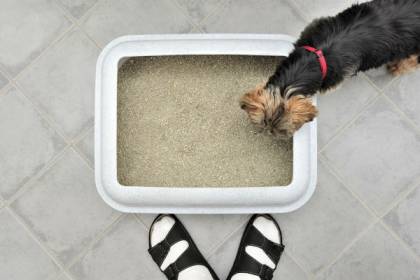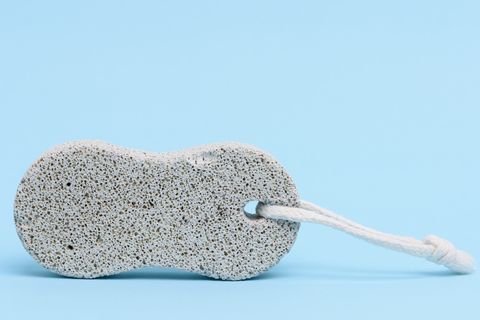Many families that have young children have Playdough (also called Play-Doh) in their homes. This is a very popular clay-like modeling substance that can be used over and over. It’s used for art projects, creative play, and more.
Connect with a verified veterinarian in minutes. Licensed vets are available 24/7 to answer your questions. No need to worry about your furry family member.
Playdough (Play-Doh)—What is It?
There are generally two types of Play-Doh—commercially-made and homemade. Both of versions of the clay-like substance are non-toxic and are made with flour, food coloring, salt, and water.
While Playdough is non-toxic, the problem for dogs is that this substance is high in salt. Salt poisoning can be deadly for dogs.
Not only that, but Play-Doh can also cause an intestinal blockage if enough of the dough is eaten. This is especially dangerous if the dog has eaten a large quantity of the Playdough.
Another problem with homemade or commercially prepared Playdough is that both contain wheat. Wheat is usually safe for most dogs; however, some dogs are gluten intolerant or have a wheat allergy. If your dog has a wheat allergy and eats this dough, his allergy symptoms could flare up and need to be treated by the vet (depending on the severity of the symptoms).
How Much Playdough is Toxic to Dogs?
If a dog eats only a small bit of the dough (commercial or homemade versions), he will probably be OK. However, more than a small amount is enough to cause symptoms of intestinal blockage, allergy issues, and more.

Review symptoms, medications & behavior to keep your pets healthy with a Vet Online in just minutes.
Ask a Vet Live NowSymptoms of Play-Doh Poisoning in Dogs
Dogs may show these symptoms after eating Play-Doh (either the commercially made or homemade product):
- Vomiting
- Diarrhea
- Loss of appetite
- Lethargy
- Fluid retention in the body
- Increased thirst (drinking a lot of water)
- Increased frequency & amount of urination
- Tremors
- Seizures
Salt poisoning in dogs is a very serious health issue. It can lead to damage to the kidneys, coma and even death. Another problem with the salt dough is that in large amounts it can cause an intestinal blockage, which is also a life-threatening medical emergency.
Symptoms of intestinal blockage can include:
- Constipation
- Abdominal swelling & pain
- Lack of appetite
- Vomiting
- Diarrhea
- Increased thirst & urination
- Seizures
If your dog has these or other concerning symptoms, it’s best to call the vet immediately. Your fur baby may have an intestinal blockage. This condition can be life-threatening.
One note—never induce vomiting in this case unless instructed to do so by your vet. Inducing vomiting can be dangerous for your dog’s health.
What to Do If Your Dog Eats Play-Doh
Try to determine how much of the Play-Doh your dog has eaten. Also check to see if he’s eaten any of the container or ornaments that may been on the Playdough. Next, whether your dog eats the homemade version or the commercially made Playdough, you’ll need to call the vet immediately.
Treatment will depend on if the Playdough was eaten recently or some hours ago. The vet may choose to induce vomiting if the dough was eaten fairly recently. And the dog may require an IV drip to replace lost fluids and support the body.
If a dog has eaten a large amount of the Play-Doh and has developed an intestinal blockage, then the vet may need to perform surgery to remove the blockage.
In either case, your fur baby may need to stay in the hospital for a few days, until he’s recovered. He may then be able to continue his recovery at home. The vet may also ask that you bring your dog in for a checkup to make sure he’s recovering as he should.
With prompt treatment, your dog has an excellent prognosis. To avoid this problem in the future, it’s best to keep all Play-Doh out of your dog’s reach, and to keep all decorations, or art made with Playdough where your dog can’t get them.
Prevention of Playdough Toxicity in Dogs
The best way to keep your fur baby from eating Playdough is to keep it out of his reach. It’s best to store playdough where your dog can’t reach it.
When the kids are playing with this dough, be sure to monitor them and your dog. Tell the kids not to feed the dough to your dog. Or keep your dog in his crate or in another room until the dough has been cleaned up and put away.
Connect with a verified veterinarian in minutes. Licensed vets are available 24/7 to answer your questions. No need to worry about your furry family member.

Kyoko
Kyoko is from a family of 3 and moved to New York with her parents and siblings when she was 13. Kyoko is fond of spending a great amount of time with pets, specifically her beagle Luna and cat Missy. Her boyfriend often complains that she spends too much time giving attention to their animals. Kyoko has written dozens of articles concerning pets and is aiming at owning a pet shop one day!
Review symptoms, medications & behavior to keep your pets healthy with a Vet Online in just minutes.
Ask a Vet Live Now




